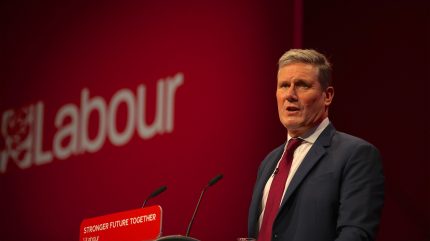
The UK’s Labour Government added six additional members to the Strategic Defence Review (SDR) committee on 2 September 2024, including the appointment of the former Conservative MP Jeremy Quinn, and Jean-Christophe Gray, a former spokesperson for Prime Minister David Cameron.
The expanded committee is tasked with conducting a root and branch review of the UK Armed Forces, assessing the nation’s defence capabilities, and aligning them with contemporary security challenges.
Defence Secretary John Healy has signalled that the new Labour Government would swiftly introduce a test to ensure the defence budget was achieving value for money while the UK remained in line with its Nato commitments, putting forward the policy as a goal for Labour to achieve within its first 100 days in power.
The Labour Party Election Manifesto made clear a commitment to consult with a wide range of voices that could directly contribute to a new SDR to address the UK’s military and ensure it meets evolving global threats, ensuring that resulting policies and programme closure decisions would be the result of cross-party consolation.
To date, the review has been spearheaded by a trio of distinguished experts: Lord Robertson of Port Ellen, Dr Fiona Hill, and General Sir Richard Barrons. With the latest announcement, the government has added several prominent figures to the Defence Review Team, each selected for their expertise in key areas outlined by the SDR’s Terms of Reference.
The newly appointed members of the Defence Review include former Conservative MP, Rt Hon Sir Jeremy Quin, a former Defence Minister and Chair of the Defence Select Committee. Quin also served as Minister for the Cabinet Office, where he oversaw the Government Commercial Function, granting him significant experience in defence acquisition.
For cross-government expertise and the employment of sound fiscal policy, the committee has brought on Jean-Christophe Gray CBE, LVO, who has served as Director of Public Spending at HM Treasury and was a spokesperson for former Prime Minister David Cameron, and who currently holds the position of Director General for Delivery at No10 and the Cabinet Office.
Any SDR developed in the current context of a heightened threat environment with an active Nato alliance is required to develop policies that align closely to Nato operations. In response to this need, the government appointed Angus Lapsley CMG, who currently serves as Nato’s Assistant Secretary General for Defence Policy and Planning, and has three decades of experience in the diplomatic and civil services.
Following previous iterations of the SDR, close observers of the UK’s defence procurement process will welcome the appointment of Grace Cassy to the SDR committee. Cassy, who previously advised former Prime Minister Tony Blair on national security, is an expert in early-stage technology companies.
The House of Lords International Relations and Defence Committee published a report criticising a previous SDR took specific issue with the UK government as customer for start-up tech companies in the defence sector. A ‘valley of death’ effect was identified in the procurement process, resulting in undesirable outcomes for tech founders and MoD programme managers.
Further to the commitment from the Labour Party to ensure that the SDR addresses the needs of serving personnel and veterans, the committee has brought on Edward Dinsmore, who was employed in a pivotal position in the Modernising Defence Programme, and led pan-Defence reviews for the Chief of Defence Staff. His deep understanding of defence personnel matters is expected to be crucial in shaping the review’s outcomes.
Robin Marshall, a Non-Executive Director on the Ministry of Defence’s Defence Board, has been added to the SDR committee to contribute experience in defence industry matters.
⠀




